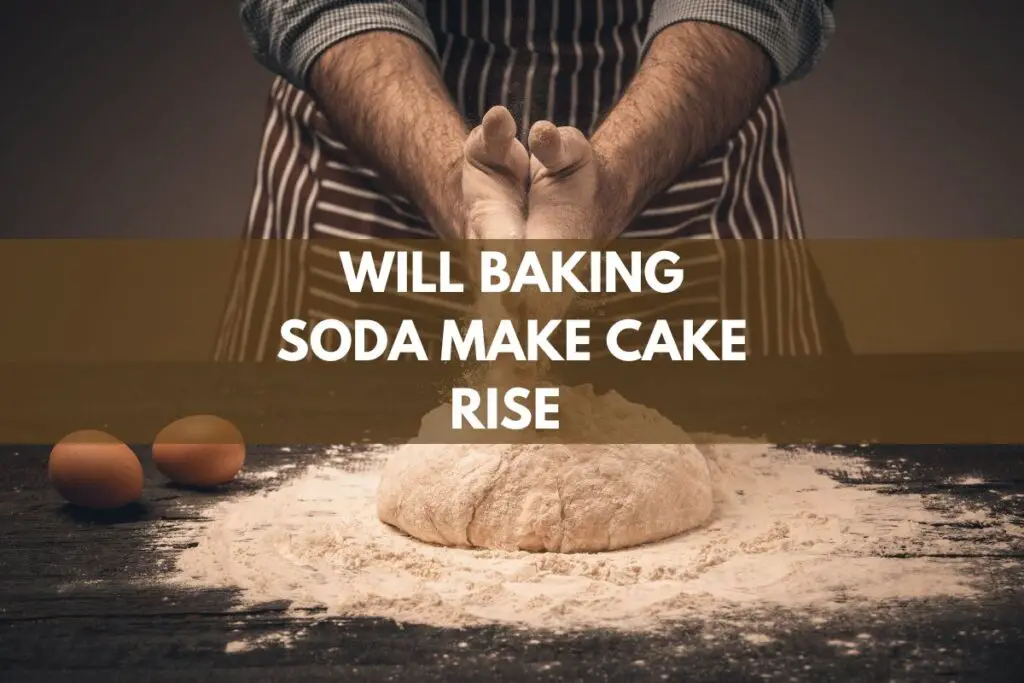Baking soda is a common leavening agent used in baking. When combined with an acidic ingredient, such as buttermilk or yogurt, it produces carbon dioxide gas, which helps cakes and quick breads to rise.
Baking soda is often used as a leavening agent in baking. When combined with an acidic ingredient, such as buttermilk, yogurt or molasses, it produces carbon dioxide gas, which causes the batter to rise.
Baking soda is a main ingredient in many cakes and other baked goods. When combined with an acidic ingredient like vinegar or lemon juice, it can help to leaven and lighten the batter, resulting in a fluffy, moist cake.

Contents
How Does Baking Soda Make Cakes Rise?
Baking soda is an ingredient often used in baking. It’s a leavening agent, which means it helps cakes and other baked goods to rise.
Baking soda works by releasing carbon dioxide gas into the batter or dough as it’s heated. This makes the batter or dough light and airy, and results in a fluffy, tender cake.
In addition to its leavening power, baking soda also adds a little bit of alkalinity to the batter. This helps to neutralize the acidity of other ingredients, like buttermilk or yogurt, which can result in a more tender cake.
If you’re out of baking soda and need to bake a cake, you can try using baking powder as a substitute.
Baking powder is a combination of baking soda and an acid, so it will also help your cake to rise. However, it doesn’t add the same alkalinity, so your cake may not be quite as tender.
See Also: Which Oven Symbol For Baking Cake
What Is The Difference Between Baking Soda And Baking Powder?
Baking soda is a leavening agent that helps baked goods rise. When used alone, baking soda can make a cake or quick bread dense.
Baking powder is a leavening agent that contains baking soda and an acidic ingredient, such as cream of tartar.
When baking powder is used, the acidic ingredient neutralizes the baking soda, resulting in a lighter cake or quick bread.
Can I Use Baking Soda Instead Of Baking Powder?
Baking soda and baking powder are both leavening agents, which means they help baked goods to rise.
Baking soda is a single-ingredient leavener, while baking powder is a blend of baking soda and an acid. Because of this, baking powder is a little more powerful than baking soda.
You can substitute baking soda for baking powder in a recipe, but you will need to make some adjustments. First, use 3/4 teaspoon of baking soda for every 1 teaspoon of baking powder.
Because baking soda is more powerful, you will need to use less of it. Third, because there is no acid in baking soda, you will need to add an acid to the recipe. This can be done by adding lemon juice, vinegar, or even cream of tartar.
Keep in mind that using baking soda in place of baking powder will result in a slightly different taste and texture in your baked goods.
Baking soda is a little more harsh, so it can make your baked goods a little more dense. It will also affect the color, so your goods may not be as light and fluffy as they would be with baking powder.
Overall, it’s best to use the leavener that is called for in the recipe. But if you don’t have baking powder and need to substitute, baking soda will work in a pinch.
How Much Baking Soda Should I Use To Make A Cake Rise?
If you’re looking to make your cake rise, you’ll need to use baking soda. The amount you’ll need to use will depend on the recipe you’re following.
But we generally recommend using 1 teaspoon of baking soda for every 1 cup of flour. With that said, you can always start with less and add more if needed.
What Happens If I Use Too Much Baking Soda In My Cake?
If you use too much baking soda in your cake, it will be very dense and dry. The cake will also be very crumbly and will not taste very good.
Moreover, if the you use too much baking soda your cake may go down after baking.
Facts About Baking Soda
- Baking soda is a leavening agent.
- It causes the cake to rise.
- It makes the cake moist.
- It gives the cake a nice flavor.
- It makes the cake fluffy.
- It makes the cake light.
Conclusion
Baking soda will make cake rise because it is a leavening agent, which means it helps dough or batter to rise.
When combined with an acid, such as buttermilk or yogurt, baking soda produces carbon dioxide gas. This gas gets trapped in the batter, causing the cake to rise.
